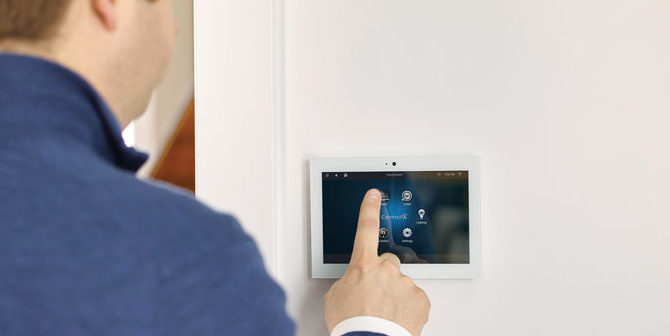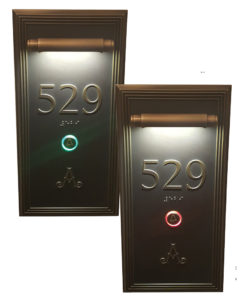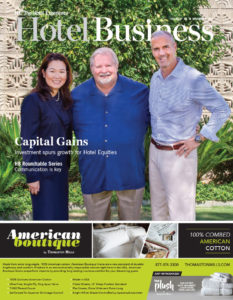DRAPER, UT—Voice control, smart TVs, casting: all hot topics in hospitality. While these are all center stage for both convenience and entertainment, automated technology doesn’t just stop at the guest experience.
Control4 is one of the automation providers supplying hotels with this type of tech, for something far beyond asking a device to turn on the football game or schedule a wake-up call.
While automated technologies can power lights and temperature control systems for guest convenience, they do something much more powerful: save energy. According to David Phillips, director of hospitality and MDU sales for Control4, this is done with motion sensors, which can power lights, heat and air conditioning on and off based on room occupancy.
“When guests check out, we want to make sure all lights have been turned off in the room and that the thermostat is set to away mode. When it’s unoccupied, we want the room to be as energy efficient as possible,” Phillips said.
While this makes sense for an unoccupied room, this technology can also control temperature and lighting to invite guests into their rooms. Phillips said that when the guest checks in, the hotel can immediately start warming or cooling a room, so they can instantly feel more comfortable and the room more inviting.
Likewise, when guests are in the room, technologies can adjust based on motion and temperature changes.
“These pieces of hardware aren’t only able to be controlled by third-party devices but are now coming to the point where they can connect to a larger system,” Phillips said. “If you open a sliding door to a balcony at a ski resort, the heating system starts working again to save energy and cut those unnecessary costs. We’re seeing things become more aware of other things happening in the room.”
In environments like these that experience extreme temperatures, there are also automated shades and blinds that can help control light.
“It may not seem like a big deal, but in an environment where there’s a lot of sun or heat, or that’s very cold, closing the shades can really help to slow down the warming or cooling of the room. By controlling the light that comes in, you can really help to reduce the heating or cooling bill. It’s kind of a passive way of saving energy,” Phillips said.
Another guestroom component that may seem insignificant in terms of sustainability is the minibar, whose door is often left opened and in a constant cooling cycle. Phillips said that this technology allows a signal to be sent to the engineering department, which will then call the room and let the guest know, or even send someone up to close the door.
“I get mad if my refrigerator door at home is left open. Why should it be any different for hotels?” he said.
According to Phillips, there are other signals that alert hotel staff and also help the environment. Digital “Do Not Disturb” signs cut down on the use of paper, while also simplifying the guest and employee experience.
While reducing paper use, the guest no longer needs to get out of bed to hang or remove “Do Not Disturb” or “Make Up Room” signs. Likewise, employees don’t need to scan floors to see room status.
“It adds a layer of efficiency for the hotel. They don’t need to send staff walking up and down the corridors of the hotel looking for the make-up room sign anymore. We’ve moved into the digital domain,” Phillips said.
“The hotel then becomes more operationally efficient. Not just energy or more ‘green,’ but operationally. There are extra savings for the hotel; they can see exactly where to send staff to clean the rooms. They can also see how many people on the floor don’t want to be disturbed. They can make smart decisions on where to send cleaning crews to get the most efficient use of their time,” he said.
Guests can now also opt into certain features like creating their own temperature and lighting set points through a “green button.” This can also set their laundry preferences, like having towels renewed every other day instead of every day, based on their personal environmental concerns.
This technology does have the power to make life a little easier, but there are still those guests who may shy away, but still want the ability to set these controls.
“There have to be multiple ways to control and adjust settings. Different types of people stay in hotel rooms,” Phillips said. “You might have somebody like my parents who don’t have any interest in controlling the temperature from a touchscreen. They want to walk over to the wall and press a button. It’s so important to still have those simple controls.”
Along with keeping some old ways still intact, there are a few kinks the industry needs to work out with the newer features, like issues with voice-control devices.
“When I go home and I use my voice-control system in my house, not only am I used to the words I need to say, but it understands my accent,” Phillips said. “[In hotels] you have people not only of all ages, but people from all over the planet staying in those rooms. It’s hard enough to use voice devices to decipher from just regional accents. In a hotel environment, it sounds like a really cool idea, but in reality, it can be frustrating unless you’ve got the TV newscaster voice.”
While technology continues to advance and solve these glitches over time, there are steps hotels, particularly, can take now to ensure a seamless and sustainable guest experience.
“The key to having a fully integrated, energy-efficient technology system in a hotel is to plan ahead. Find a team who can project manage this and ensure seamless integration between devices and products, just like in the residential world,” Phillips said. “It’s going to get more and more common, popular and affordable. We look at electronics—they need to be recyclable now; we look at cars and they have to meet emission standards; we look at buildings, and they have to meet efficiency requirements.”
The hospitality industry can also embrace these types of products more, allowing for integration and technology to feed into hotels’ sustainability efforts, Phillips said.
“You need to have this open-arm approach when it comes to integrating your products with other people’s products, otherwise you’re going to get left behind,” he said. HB



